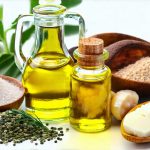High-fat diets have become increasingly prevalent in many modern societies, with readily available processed foods and larger portion sizes contributing to increased fat intake. While fats are essential for various bodily functions, consuming excessive amounts can lead to a range of digestive discomforts, frequently manifesting as nausea and indigestion. Understanding the relationship between dietary fat and these symptoms is crucial for making informed choices about nutrition and overall well-being. This article will explore the ways in which high-fat diets can impact the digestive system, leading to feelings of nausea and indigestion, and offer insights into potential mitigating strategies.
Nausea and indigestion aren’t simply unpleasant; they signal that something isn’t functioning optimally within the digestive process. These symptoms can significantly disrupt daily life, impacting appetite, energy levels, and overall quality of life. Understanding why high-fat diets contribute to these issues is the first step toward managing them effectively. This exploration will focus on the physiological mechanisms involved, rather than offering specific dietary prescriptions.
The Digestive Process & Fat Metabolism
Digesting fats requires a more complex process compared to carbohydrates or proteins. The body utilizes bile, produced by the liver and stored in the gallbladder, to emulsify fats, breaking them down into smaller droplets for easier absorption. This process, along with enzymatic action from pancreatic lipase, is essential for efficient fat digestion. When excessive amounts of fat are consumed, the digestive system can become overloaded, potentially leading to incomplete digestion and subsequent discomfort.
The rate at which fats are digested also plays a role. Fats generally take longer to digest than other macronutrients, meaning food remains in the stomach for an extended period. This prolonged gastric emptying time can contribute to feelings of fullness, bloating, and even nausea, particularly if the fat content is very high.
Dietary Fat & Digestive Discomfort
High-fat foods are often associated with slower digestion, which can create a feeling of heaviness or discomfort in the stomach. The body works harder to process these larger quantities of fat, potentially leading to digestive distress for some individuals. This isn’t necessarily an indication of illness but rather a physiological response to increased workload within the digestive system.
Delayed Gastric Emptying & Nausea
As mentioned previously, fats slow down gastric emptying – the rate at which food moves from the stomach to the small intestine. A delayed emptying time can lead to feelings of fullness for longer periods and may exacerbate nausea in some individuals. This is because a full stomach sends signals to the brain that can trigger feelings of discomfort or even emesis (vomiting). The type of fat also matters; saturated fats tend to delay gastric emptying more than unsaturated fats, although individual responses will vary.
Bile Overload & Indigestion
The gallbladder releases bile in response to fat intake. Consistently consuming high-fat diets can put a strain on the gallbladder, potentially leading to reduced efficiency or even gallstone formation over time. Even without these conditions, frequent surges of bile release to process large amounts of fat can overwhelm the digestive system and contribute to indigestion symptoms like bloating, abdominal pain, and discomfort. Incomplete fat digestion due to insufficient bile can also lead to steatorrhea – fatty stools – further contributing to digestive upset.
Impact on Gut Microbiota & Inflammation
Emerging research suggests a link between high-fat diets, gut microbiota composition, and inflammation. A diet consistently rich in fats, particularly saturated and trans fats, can alter the balance of bacteria within the gut, potentially reducing beneficial bacteria and promoting the growth of less desirable species. This imbalance, known as dysbiosis, may contribute to increased intestinal permeability (“leaky gut”) and systemic inflammation which can manifest as digestive symptoms like nausea and indigestion. While more research is needed, these connections highlight the complex interplay between diet, gut health, and overall well-being.
Ultimately, understanding how high-fat diets impact digestion provides valuable insight into why some individuals experience nausea and indigestion after consuming fatty foods. It’s important to remember that individual tolerances vary significantly. Factors such as pre-existing digestive conditions, overall dietary habits, and genetic predispositions can all influence the severity of symptoms experienced in response to a high-fat diet. Focusing on mindful eating practices, portion control, and incorporating a balanced diet are key steps toward managing potential discomfort and supporting optimal digestive health.


















